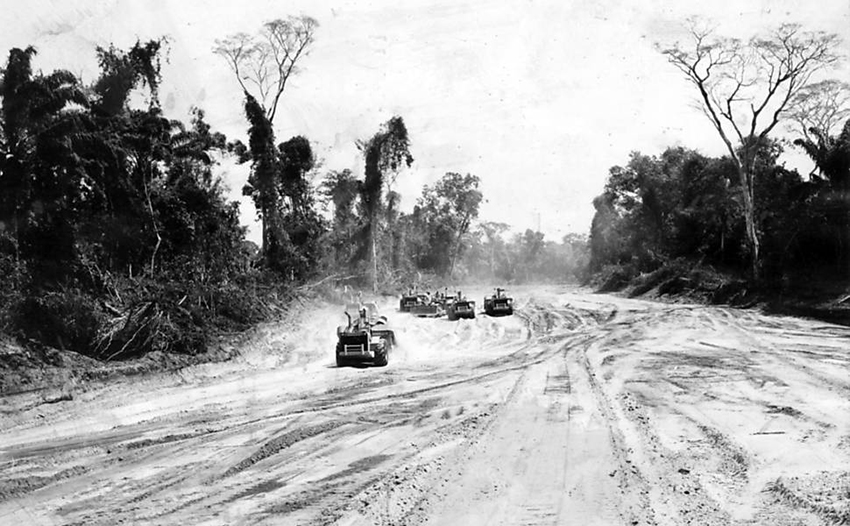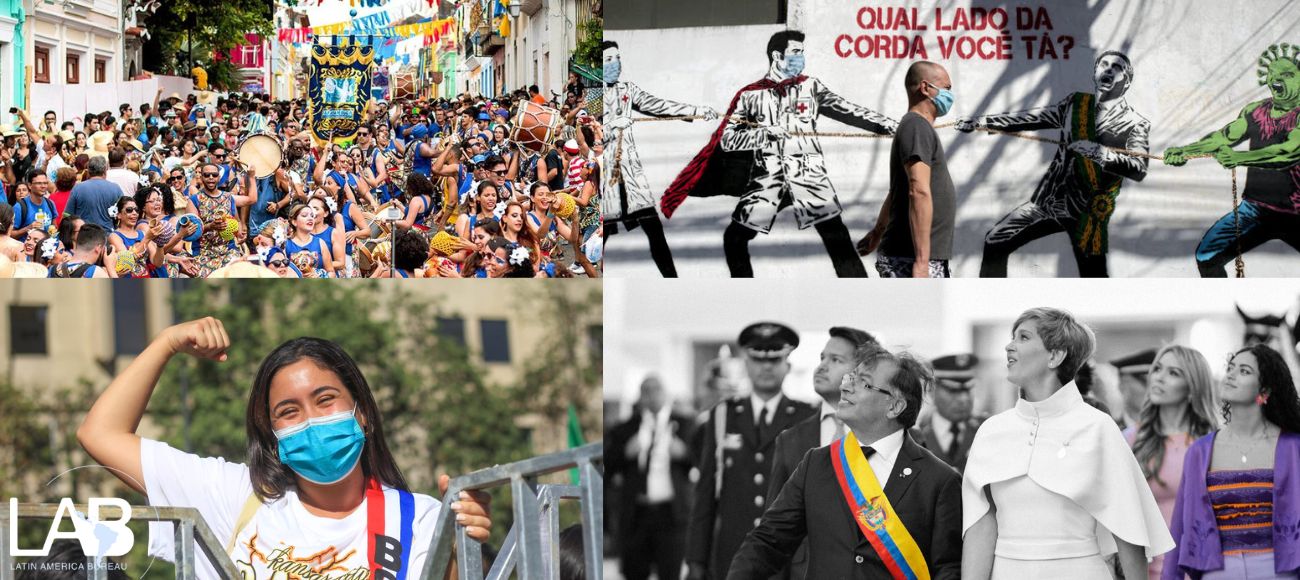 In a recent interview in Portuguese, which can be found here, the Brazilian anthropologist Eduardo Viveiro de Castro, a professor at the National Museum in the Federal University of Rio de Janerio, expresses this view with great eloquence:
“The Brazil project which the current coalition government, under the command of the PT, is pursuing is one in which ribeirinhos [riverbank dwellers], indians, peasants, quilombolas [those in communities set up by runaway slaves] and so on are seen as backward people, who are socially and culturally retarded and need to be led to a higher stage of development. This is a tragically mistaken conception. The PT has São Paulo in its DNA and its project for Brazil is a ‘saopaulo-isation’ of Brazil.… The PT sees the Brazilian Amazon as a place to be civilised, to be domesticated, to be made to produce wealth, to be capitalised. It is the old bandeirantismo that has taken hold of the national project, in a distressing continuity between the geopolitical vision of the dictatorship and that of the current government.”
He goes on:
“We are seeing today, in a truly dialectical irony, a government led by a person who was persecuted and tortured by the dictatorship carrying out a project that was thought up and implemented by that same dictatorship: destruction of the Amazon, mechanisation, the use of GMOs and toxic chemicals in agriculture, forced migration to the cities. Behind this lies a certain idea of today’s Brazil, at the beginning of the 21st century, being the re-enactment of the USA in the 20th century.”
In a recent interview in Portuguese, which can be found here, the Brazilian anthropologist Eduardo Viveiro de Castro, a professor at the National Museum in the Federal University of Rio de Janerio, expresses this view with great eloquence:
“The Brazil project which the current coalition government, under the command of the PT, is pursuing is one in which ribeirinhos [riverbank dwellers], indians, peasants, quilombolas [those in communities set up by runaway slaves] and so on are seen as backward people, who are socially and culturally retarded and need to be led to a higher stage of development. This is a tragically mistaken conception. The PT has São Paulo in its DNA and its project for Brazil is a ‘saopaulo-isation’ of Brazil.… The PT sees the Brazilian Amazon as a place to be civilised, to be domesticated, to be made to produce wealth, to be capitalised. It is the old bandeirantismo that has taken hold of the national project, in a distressing continuity between the geopolitical vision of the dictatorship and that of the current government.”
He goes on:
“We are seeing today, in a truly dialectical irony, a government led by a person who was persecuted and tortured by the dictatorship carrying out a project that was thought up and implemented by that same dictatorship: destruction of the Amazon, mechanisation, the use of GMOs and toxic chemicals in agriculture, forced migration to the cities. Behind this lies a certain idea of today’s Brazil, at the beginning of the 21st century, being the re-enactment of the USA in the 20th century.”

Brazil: the road to progress?
General Emilio Garrastazu Médici, who was the most authoritarian of the generals who ruled Brazil during the 1964-85 dictatorship, went to the Amazon in 1970 to announce the beginning of the construction of the Transamazônica Highway, a road that was to cross the basin from east to west. The event has become famous in Brazil because the general was said to have clapped as various giant Brazil nut trees were felled.
The TV footage of the event has been found and placed on youtube. To the sound of triumphant music, it indeed shows giant tractors knocking down trees. And it quotes from the speech General Médici made at the event in which he talks of the Amazon as being a “demographic vacuum”, which may finally have found its vocation with “the men without land” in the north-east moving to “the land without men” in the Amazon.
I was in the region a couple of years later, and the footage brings back strongly the political climate of the time. I remember the manager of Volkswagen’s large cattle ranch, almost 140,000 hectares in size, in the south of the state of Pará, banging angrily on the table when I cautiously asked him about the long-term viability of cattle-rearing on the poor Amazonian soils.
The rhetoric has certainly changed over the last 43 years, but I felt strongly on my recent trip to the region that the underlying rationale – that the Amazon basin is a treasure trove whose wealth may be freely plundered – remains unchanged.
 In a recent interview in Portuguese, which can be found here, the Brazilian anthropologist Eduardo Viveiro de Castro, a professor at the National Museum in the Federal University of Rio de Janerio, expresses this view with great eloquence:
“The Brazil project which the current coalition government, under the command of the PT, is pursuing is one in which ribeirinhos [riverbank dwellers], indians, peasants, quilombolas [those in communities set up by runaway slaves] and so on are seen as backward people, who are socially and culturally retarded and need to be led to a higher stage of development. This is a tragically mistaken conception. The PT has São Paulo in its DNA and its project for Brazil is a ‘saopaulo-isation’ of Brazil.… The PT sees the Brazilian Amazon as a place to be civilised, to be domesticated, to be made to produce wealth, to be capitalised. It is the old bandeirantismo that has taken hold of the national project, in a distressing continuity between the geopolitical vision of the dictatorship and that of the current government.”
He goes on:
“We are seeing today, in a truly dialectical irony, a government led by a person who was persecuted and tortured by the dictatorship carrying out a project that was thought up and implemented by that same dictatorship: destruction of the Amazon, mechanisation, the use of GMOs and toxic chemicals in agriculture, forced migration to the cities. Behind this lies a certain idea of today’s Brazil, at the beginning of the 21st century, being the re-enactment of the USA in the 20th century.”
In a recent interview in Portuguese, which can be found here, the Brazilian anthropologist Eduardo Viveiro de Castro, a professor at the National Museum in the Federal University of Rio de Janerio, expresses this view with great eloquence:
“The Brazil project which the current coalition government, under the command of the PT, is pursuing is one in which ribeirinhos [riverbank dwellers], indians, peasants, quilombolas [those in communities set up by runaway slaves] and so on are seen as backward people, who are socially and culturally retarded and need to be led to a higher stage of development. This is a tragically mistaken conception. The PT has São Paulo in its DNA and its project for Brazil is a ‘saopaulo-isation’ of Brazil.… The PT sees the Brazilian Amazon as a place to be civilised, to be domesticated, to be made to produce wealth, to be capitalised. It is the old bandeirantismo that has taken hold of the national project, in a distressing continuity between the geopolitical vision of the dictatorship and that of the current government.”
He goes on:
“We are seeing today, in a truly dialectical irony, a government led by a person who was persecuted and tortured by the dictatorship carrying out a project that was thought up and implemented by that same dictatorship: destruction of the Amazon, mechanisation, the use of GMOs and toxic chemicals in agriculture, forced migration to the cities. Behind this lies a certain idea of today’s Brazil, at the beginning of the 21st century, being the re-enactment of the USA in the 20th century.”
 In a recent interview in Portuguese, which can be found here, the Brazilian anthropologist Eduardo Viveiro de Castro, a professor at the National Museum in the Federal University of Rio de Janerio, expresses this view with great eloquence:
“The Brazil project which the current coalition government, under the command of the PT, is pursuing is one in which ribeirinhos [riverbank dwellers], indians, peasants, quilombolas [those in communities set up by runaway slaves] and so on are seen as backward people, who are socially and culturally retarded and need to be led to a higher stage of development. This is a tragically mistaken conception. The PT has São Paulo in its DNA and its project for Brazil is a ‘saopaulo-isation’ of Brazil.… The PT sees the Brazilian Amazon as a place to be civilised, to be domesticated, to be made to produce wealth, to be capitalised. It is the old bandeirantismo that has taken hold of the national project, in a distressing continuity between the geopolitical vision of the dictatorship and that of the current government.”
He goes on:
“We are seeing today, in a truly dialectical irony, a government led by a person who was persecuted and tortured by the dictatorship carrying out a project that was thought up and implemented by that same dictatorship: destruction of the Amazon, mechanisation, the use of GMOs and toxic chemicals in agriculture, forced migration to the cities. Behind this lies a certain idea of today’s Brazil, at the beginning of the 21st century, being the re-enactment of the USA in the 20th century.”
In a recent interview in Portuguese, which can be found here, the Brazilian anthropologist Eduardo Viveiro de Castro, a professor at the National Museum in the Federal University of Rio de Janerio, expresses this view with great eloquence:
“The Brazil project which the current coalition government, under the command of the PT, is pursuing is one in which ribeirinhos [riverbank dwellers], indians, peasants, quilombolas [those in communities set up by runaway slaves] and so on are seen as backward people, who are socially and culturally retarded and need to be led to a higher stage of development. This is a tragically mistaken conception. The PT has São Paulo in its DNA and its project for Brazil is a ‘saopaulo-isation’ of Brazil.… The PT sees the Brazilian Amazon as a place to be civilised, to be domesticated, to be made to produce wealth, to be capitalised. It is the old bandeirantismo that has taken hold of the national project, in a distressing continuity between the geopolitical vision of the dictatorship and that of the current government.”
He goes on:
“We are seeing today, in a truly dialectical irony, a government led by a person who was persecuted and tortured by the dictatorship carrying out a project that was thought up and implemented by that same dictatorship: destruction of the Amazon, mechanisation, the use of GMOs and toxic chemicals in agriculture, forced migration to the cities. Behind this lies a certain idea of today’s Brazil, at the beginning of the 21st century, being the re-enactment of the USA in the 20th century.”

